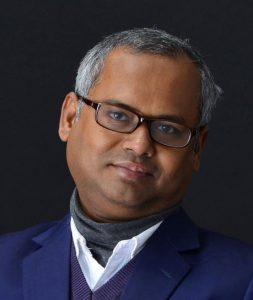Given the continued global spread of COVID-19, we have decided to cancel this lecture course [2020.04.06].
**********************************************************
As part of a series of international collaborative courses offered by the Social Sciences and Humanities Unit for the Kyoto University Top Global Course (AGST), the Division of Natural Resource Economics will hold an intensive lecture course entitled “Productivity and Efficiency Measurement” (Special Lecture on Natural Resources Economics VIA) , jointly taught by Prof. Subal C. Kumbhakar from the State University of New York at Binghamton and Dr. Mohammad Abdul Malek from the University of Tsukuba on 4-8 July 2020.
[Course Title]
Special Lecture on Natural Resources Economics VIA (生物資源経済学特別講義VIA) (Code: FC10000)
“Productivity and Efficiency Measurement”
[Number of credits]
1 (one)
[Instructors]
Prof. Subal C. Kumbhakar
Distinguished Professor of Economics, Department of Economics, State University of New York at Binghamton
His main areas of research are Econometrics, Applied Microeconometrics, Measurement of Efficiency and Productivity.
Page at SUNY Binghamton: https://www.binghamton.edu/economics/faculty/profile.html?id=kkar
Dr. Mohammad Abdul Malek
Associate Professor (Development Economics and South/Southeast Asian Studies), Faculty of Humanities and Social Sciences, University of Tsukuba
His research fields are Economic Policy, Agricultural Science in Rural Society and Development, Area Studies.
Page at University of Tsukuba: https://trios.tsukuba.ac.jp/en/researcher/4222
[Schedule]
July 4 (Sat): L1* (14:45-16:15)
July 5 (Sun): L2 (8:45-10:15) + L3 (10:30-12:00) + L4 (14:45-16:15)
July 6 (Mon): L5* (10:30-12:00)
July 7 (Tue): L6 (8:45-10:15) + L7 (10:30-12:00) + L8 (13:00-14:30)
July 8 (Wed): L9 (8:45-10:15) + Exam (10:30-12:00)
Note: *While Dr. Malek will conduct lab session at L1 and L5, all other lectures, lab and exam session will be conducted by Prof. Kumbhakar.
[Venue]
July 4-7: Room W222 (Computer lab), 2nd floor, Faculty of Agriculture Main Bldg.
July 8 : Room W402, 4th floor, Faculty of Agriculture Main Bldg.
Click here for a map of the venue.
[Language]
English
[Outline and purpose of the course]
Conventional neoclassical paradigm assumes that all firms operate rationally and efficiently. This is, however, not the case in reality. Firms, no matter what type of business they are involved often fail to operate with their full potential. The course challenges the neoclassical assumption of full efficiency and presents concepts, models and tools needed to analyze and quantify the levels of inefficiency and productivity at a point in time and their movement over time for each firm.
Presence of inefficiency results in lower output, higher cost, lower profit. Thus, it is important to know the extent of inefficiency and how it affects output, cost, revenue, profit, etc. Also the factors that might affect these inefficiencies.
This course uses an econometric approach (known as stochastic frontier approach) to identify and estimate the magnitude and possible sources of inefficiency using both cross-sectional and panel data. The focus will be mostly on technical inefficiency and its determinants.
The course also examines the impact of inefficiency on productivity growth (TFP) and profitability. We also address issues related to undesirable output and environmental efficiency. Finally, we show Stata software can be used to estimate inefficiency using a variety of models.
[Syllabus and Flyer]
Please see Syllabus and Flyer for further information.
[Registration]
[For Academic Credit]:
■Students at GSA (Graduate School of Agriculture):
Please register on KULASIS during the designated registration period:
・Timetable creation: April 2-16
・Registration: April 17-20
・ Correction: April 23-24
・Confirmation of registration: April 28 (5:00 pm)
■Students at other Graduate Schools:
Students at other Graduate Schools also can register for this course via KULASIS. However, the registration period may differ from one Graduate School to another. Please contact the student affairs office of your affiliated Graduate School for more detailed information about the course registration procedure.
[For Auditing (no credit)]:
Registration for auditing this lecture course will open at the beginning of May after the close of the course registration on KULASIS. Please wait until further notice.
[Contact]
Makoto KURODA, Assistant Teaching Staff, Division of Natural Resource Economics, Graduate School of Agriculture
E-mail: kuroda.makoto.6a[at]kyoto-u.ac.jp (please replace [at] with @)
Extension: 6181




